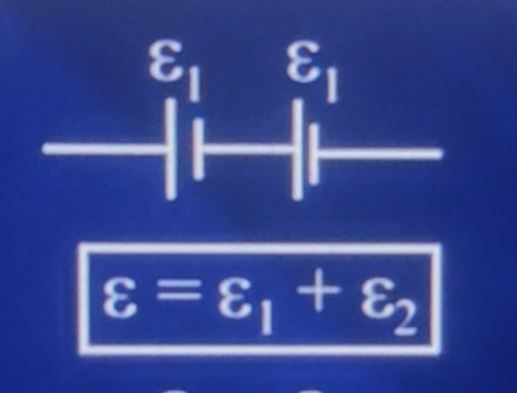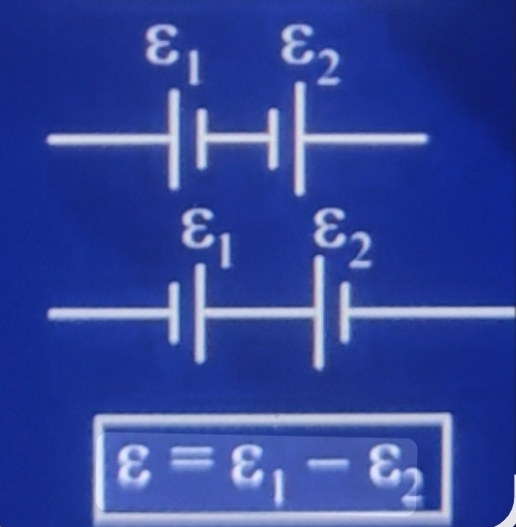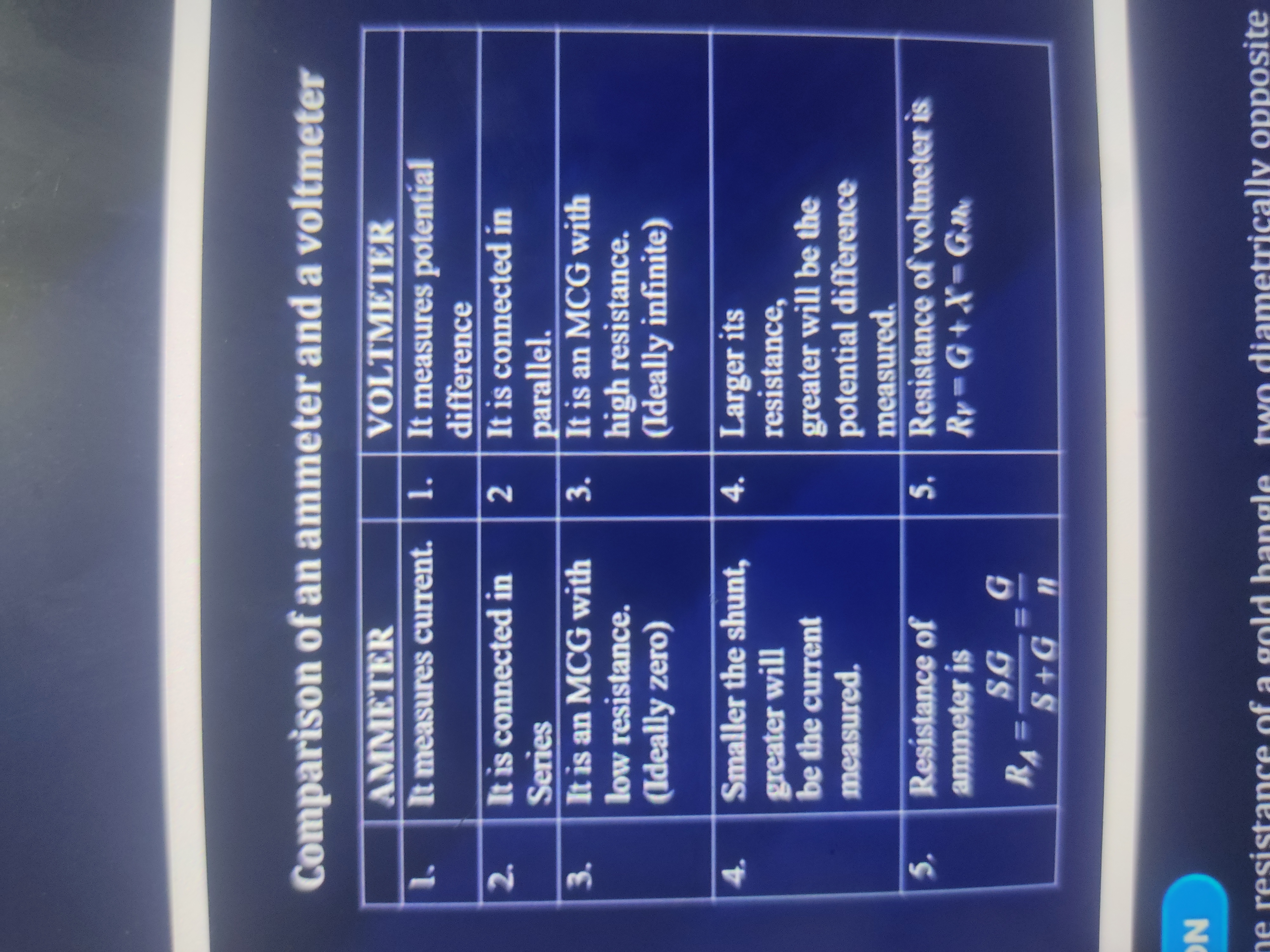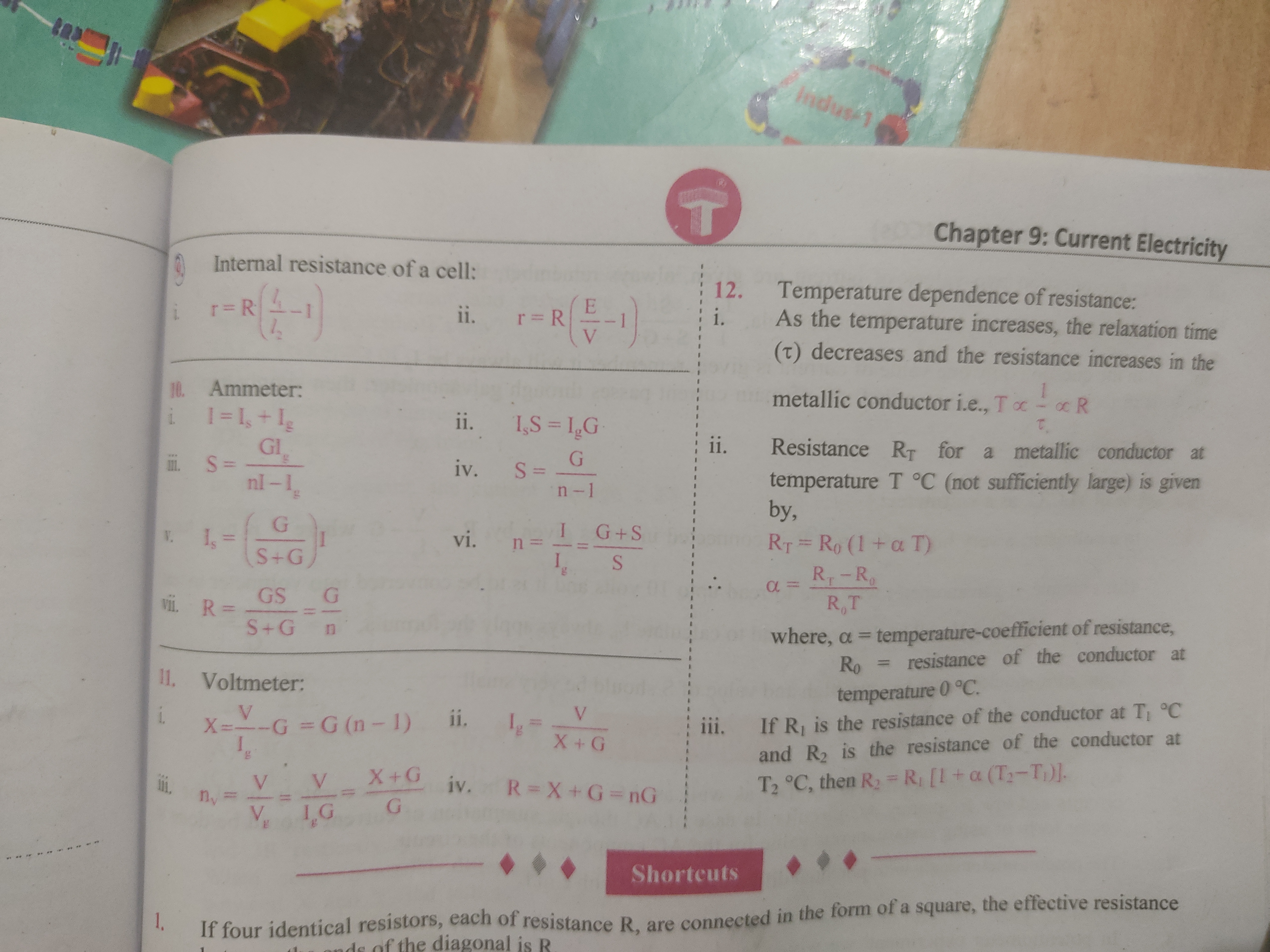Current electricity
1/33
There's no tags or description
Looks like no tags are added yet.
Name | Mastery | Learn | Test | Matching | Spaced |
|---|
No study sessions yet.
34 Terms
Current Electricity
The flow of electric charge, usually measured in Amperes.
Resistance in Series
The total resistance in a series circuit is the sum of individual resistances: Rs = R₁ + R₂ + ... + Rn.
R_s= nR
Resistance in Parallel
The total resistance in a parallel circuit is given by 1/Rp = 1/R₁ + 1/R₂ + ... + 1/Rn.
R_p= R/n
What is the formula for capacitance in series?
1/C_s = 1/C_1 + 1/C_2 + ... + 1/C_n
What is the formula for capacitance in parallel?
C_p = C_1 + C_2 + ... + C_n
What is the formula for resistance using Ohm's Law?
R = V/I
Kirchhoff's First Law(KCL)
The algebraic sum of currents entering a junction must equal the sum of currents leaving the junction.
What is the sign convention for current in Kirchhoff’s Current Law?
Towards junction = Positive
Away from junction = Negative
Kirchhoff's Voltage Law
The algebraic sum of all potential differences in a closed loop must equal zero.
ΣIR + ΣE = 0
What is the sign convention for voltage in Kirchhoff’s Voltage Law?
Along the direction of conventional current - Negative
Against the direction of conventional current - Positive
Negative to positive terminal inside cell- Positive
Positive to positive terminal inside cell - Negative
Wheatstone Bridge
A method used to measure unknown resistances by balancing two legs of a bridge circuit.
P/Q=S/R
L_g=0 (at balanced condition)
What is the formula for resistance in a metre bridge?
R = ρl / A
R ∝ l
x / R = l_x / l_R
x / R = l_x / (100 - l_x)
How is resistance related to the length of the wire in a metre bridge?
Resistance is directly proportional to the length of the wire
What is the balancing condition formula for a metre bridge?
x / R = l_x / (100 - l_x)
Potentiometer
An instrument used to measure potential differences by balancing against a standard.
What is the formula for potential difference across the potentiometer wire?
I = E / (R + r)
V_AB = IR = (E * R) / (R + r)
What is the formula for potential gradient in a potentiometer?
V_AB / L= €R/(R+r)L (or potential drop per unit length)
How can a potentiometer be used to compare the EMF of two cells?
e_1 = (V_AB /L)* l_1
e_2 = (V_AB /L) * l_2
e_1/e_2= l_1/l_2
E=e1+e2 is used when

E= e1-e2 is used when

Some more emf compare formuals

What is the formula for finding the internal resistance of a cell using a potentiometer?
r = R * (l_1 / l_2 - 1)
Name three applications of a potentiometer.
1. Voltage Divider – It helps measure potential drop along the length.
2. Audio Control – It is used due to its potential gradient.
3. Potentiometer as a Sensor – It is highly sensitive and used for precise measurements.
Why is a potentiometer better than a voltmeter?
1. It is more sensitive.
2. It can measure both potential difference and EMF accurately.
3. It is highly accurate as it does not draw current.
Galvanometer
It works based on the magnetic effect of electric current.
Why is a galvanometer highly sensitive?
It can detect very small currents, typically in the order of 1 mA.
Galvanometer as ammeter
Resistance of Galvanometer be G and full scalee deflection current be l_s
Effect current capacity must ↑
Effective resistance must ↓
Must protect from damage
Use of shunt(low resistance in parallel)
1. Diverts large current away from the galvanometer.
2. Increases the range of current measurement.
3. Reduces overall resistance of the ci
rcuit.
What is the formula for shunt resistance in an ammeter?
I_gG=i_sS
S= {l_g/l-l_g}G
Galvanometer as a Voltmeter
Voltage measuring capacity must↑
Effectivee resistance must ↑
Must be protected from damage
What is the formula for resistance in a voltmeter?
X = V / Ig - G
Comparison of an ammeter and a voltmeter

Formulaes
